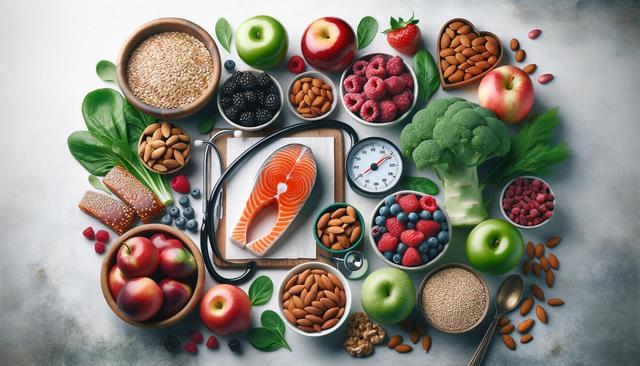Why Cardiologists Emphasize Diet for Heart Health
Cardiologists frequently highlight the role of a balanced diet in preventing and managing heart disease. While genetics and lifestyle factors like exercise and stress management are important, nutrition remains a cornerstone of heart health. A diet rich in whole, unprocessed foods can help control blood pressure, reduce cholesterol levels, and maintain a healthy weight—all critical factors in reducing the risk of heart conditions.
Research consistently supports that plant-based and Mediterranean-style diets are associated with better heart outcomes. These eating patterns emphasize fruits, vegetables, whole grains, lean proteins, and healthy fats, while limiting processed foods, added sugars, and sodium. Cardiologists often suggest starting small by incorporating a few heart-friendly foods into daily meals, which can lead to long-term, sustainable improvements in cardiovascular health.
Leafy Greens and Vegetables: Nutrient-Dense Staples
Leafy greens such as spinach, kale, and arugula are frequently recommended by cardiologists due to their high content of vitamins, minerals, and antioxidants. They are particularly rich in vitamin K, which supports proper blood clotting and may help protect arteries. Additionally, these vegetables contain dietary nitrates that have been shown to help lower blood pressure and improve vascular function.
Other vegetables such as broccoli, carrots, bell peppers, and Brussels sprouts also contribute to heart health by offering a range of phytonutrients and fiber. Some of the key benefits of including a variety of vegetables in your diet include:
- Reduction in inflammation throughout the body
- Lower cholesterol absorption in the digestive tract
- Improved blood vessel function
- Support for healthy weight management
To get the most benefits, aim to fill half your plate with vegetables at each meal. Steamed, roasted, sautéed, or eaten raw, these foods are versatile and easy to incorporate into daily eating habits.
Whole Grains and Fiber-Rich Foods
Whole grains are another group of foods that cardiologists often encourage. Unlike refined grains, whole grains retain all parts of the grain, including the bran, germ, and endosperm, which gives them higher fiber and nutrient content. This fiber helps reduce LDL (bad) cholesterol and supports stable blood sugar levels.
Examples of heart-healthy whole grains include:
- Oats
- Brown rice
- Quinoa
- Barley
- Whole wheat bread and pasta
Legumes like beans, lentils, and chickpeas also fall into the fiber-rich category and are excellent plant-based protein sources. Including these in meals a few times a week not only supports heart health but also aids in digestion and provides long-lasting energy. Cardiologists often recommend swapping refined carbohydrates with whole grain alternatives as a simple yet effective dietary change.
Healthy Fats: The Good Kind of Fat
Not all fats are created equal, and cardiologists make a clear distinction between healthy and unhealthy fats. Monounsaturated and polyunsaturated fats, found in foods like avocados, nuts, seeds, and certain oils (such as olive and flaxseed oil), are known to support heart health. These fats can help reduce bad cholesterol levels and increase HDL (good) cholesterol, contributing to better arterial function.
Fatty fish such as salmon, mackerel, and sardines are excellent sources of omega-3 fatty acids, which have been shown to reduce inflammation, lower triglyceride levels, and potentially reduce the risk of arrhythmias. Cardiologists often suggest including fatty fish in meals at least twice a week.
To incorporate more healthy fats into your diet, consider these tips:
- Use olive oil instead of butter or margarine
- Snack on a small handful of unsalted nuts
- Top salads with avocado slices
- Add chia or flaxseeds to smoothies or yogurt
Fruits and Berries: Natural Sweetness with Benefits
Fruits, especially berries, offer a naturally sweet way to support heart health. Blueberries, strawberries, raspberries, and blackberries are rich in antioxidants such as anthocyanins, which may help reduce oxidative stress and inflammation in the cardiovascular system. These fruits are also high in fiber and low in calories, making them ideal for a heart-conscious eating plan.
Citrus fruits like oranges and grapefruits provide vitamin C, potassium, and flavonoids that contribute to blood pressure regulation and arterial flexibility. Apples and pears are also praised for their soluble fiber content, particularly pectin, which can help lower cholesterol levels.
Incorporating fruits into your daily routine can be simple and enjoyable. Some easy options include:
- Adding fresh berries to cereal or oatmeal
- Blending fruits into smoothies
- Enjoying sliced fruit as a midday snack
- Using fruit as a natural dessert option


